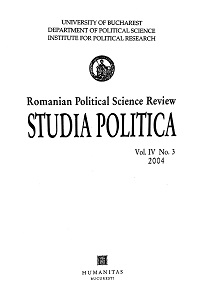The Failure of a Political Project. Bipartidism in Interwar Romania
The Failure of a Political Project. Bipartidism in Interwar Romania
Author(s): Stelu ŞerbanSubject(s): Politics / Political Sciences, Politics, History, Political history, Recent History (1900 till today), Government/Political systems, Interwar Period (1920 - 1939)
Published by: Editura Universităţii din Bucureşti
Keywords: Bipartidism; modernization; the Political Élite; interwar; Romania;
Summary/Abstract: The modernization of the traditional societies challenges the ability of the political élites to ensure political stability. Political stability can be achieved through a certain design of the party system, which could be dominated by a single party, or could be characterized by bi- or multipartidism. Maintaining political stability was also a priority for the political élites of interwar Romania, who wished to restore the model of the pre-war stable bipartidism. The electoral legislation of 1926 aimed to consolidate a two-party system, but in the long term it had the perverse effect of multipolarization. While painting a very detailed analysis of the interwar party system, the author argues that such effects are due to the influence of the very competitive political culture of the ideology- driven ruling class, a "political tradition", which undermined political stability. Moreover, while the electoral legislation introduced in 1926 was maintained, a new propensity to short-sighted bargaining and the paucity of the social issues raised by the parties marked the ever more complex party politics, as the effects of this socio-cultural context began to wane.
Journal: Studia Politica. Romanian Political Science Review
- Issue Year: 4/2004
- Issue No: 3
- Page Range: 581-607
- Page Count: 27
- Language: English

